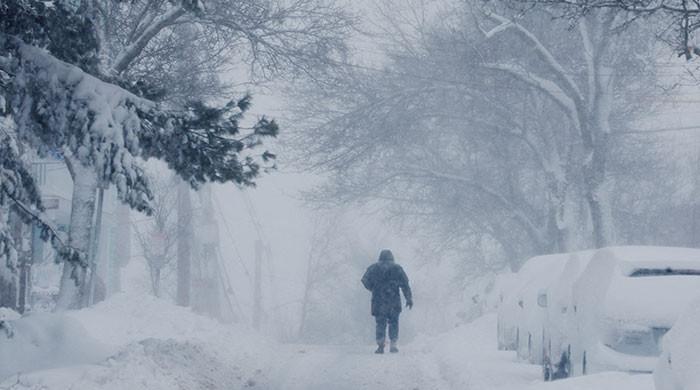Chinese official says coronavirus peak has passed as Hubei province records single-digit new cases
While coronavirus is spreading quickly globally, its progress in China has slowed markedly in past seven days
March 12, 2020

BEIJING/SHANGHAI: After recording less than 20 new infections in the Hubei province, a top health commission official of China said the country's coronavirus epidemic has passed its peak.
With the marked slowdown of the spread of the virus, more businesses have reopened with authorities cautiously easing strict containment measures.
Hubei province, where the coronavirus emerged late last year, announced on Thursday a further loosening of travel restrictions and will also allow some industries to resume production in two of its cities and two counties.
“Broadly speaking, the peak of the epidemic has passed for China,” said Mi Feng, a spokesman for the National Health Commission.
Also read: China virus cases fall, but more imported from abroad
“The increase of new cases is falling,” he said.
Hubei’s economy, driven by manufacturing and trade, including a sizable auto sector in the provincial capital of Wuhan, had been virtually shuttered since January 23.
While the virus is spreading quickly globally, its progress in China has slowed markedly in the past seven days, a result of strict measures imposed to control the movement of people and traffic, including the virtual lockdown of Wuhan, a city of 11 million people.
Wuhan accounted for all of the new cases recorded on Wednesday, the National Health Commission said. Outside of Hubei, mainland China had seven new cases, six of them imported from abroad.
Of the six imported cases, Guangdong province accounted for three, while Gansu province and Henan province were responsible for two and one, respectively.
Also read: China says most of new infections outside Wuhan originated abroad
In all, 15 new cases were recorded in mainland China on Wednesday, down from 24 the day before.
That brings the total number of cases recorded in mainland China to 80,793. As of Tuesday, 62,793 people had recovered and been discharged from hospital, or nearly 80% of the infections.
As of the end of Wednesday, the death toll in mainland China had reached 3,169, up by 11 from the previous day. Hubei accounted for 10 of the new deaths, including seven in Wuhan.
The ruling Communist Party newspaper, the People’s Daily, warned in an editorial that while the number of new virus cases in China was falling, conditions were still difficult and there were risks of more outbreaks.
‘Enormous strain’
China is focusing on restarting factories and businesses hit by the containment policies that prevented millions of people from traveling and returning to work after an extended Lunar New Year holiday.
Factory activity plunged to its worst level on record in February, and while more businesses have reopened in recent weeks as containment measures have been eased, analysts do not expect activity to return to normal until April.
Airlines have been hit particularly hard. China’s airlines reported total losses of 20.96 billion yuan ($3 billion) in February.
The total number of airline passengers fell 84.5% year-on-year last month, compared with the same time last year, China’s aviation regulator said.
Also read: At least six die in China after hotel used as coronavirus quarantine site collapses
Local governments must do their utmost to ensure people return to work as soon as possible, the official China Daily said in an editorial.
Many businesses are still facing labor shortages and supply-chain disruptions, the China Daily said.
“The epidemic control measures have put an enormous strain on China’s enterprises, especially the small and medium-sized ones in the service sector,” it said.
“Any further delay in their return to normal operations will entail widespread bankruptcies and job losses, which will threaten social stability.”
The Hubei government on Wednesday said Wuhan would allow some key industries to resume work.
On Thursday, it said containment measures would be relaxed in two other cities in the province — Qianjian and Shishou — and in the counties of Gongan and Zhuxi.











